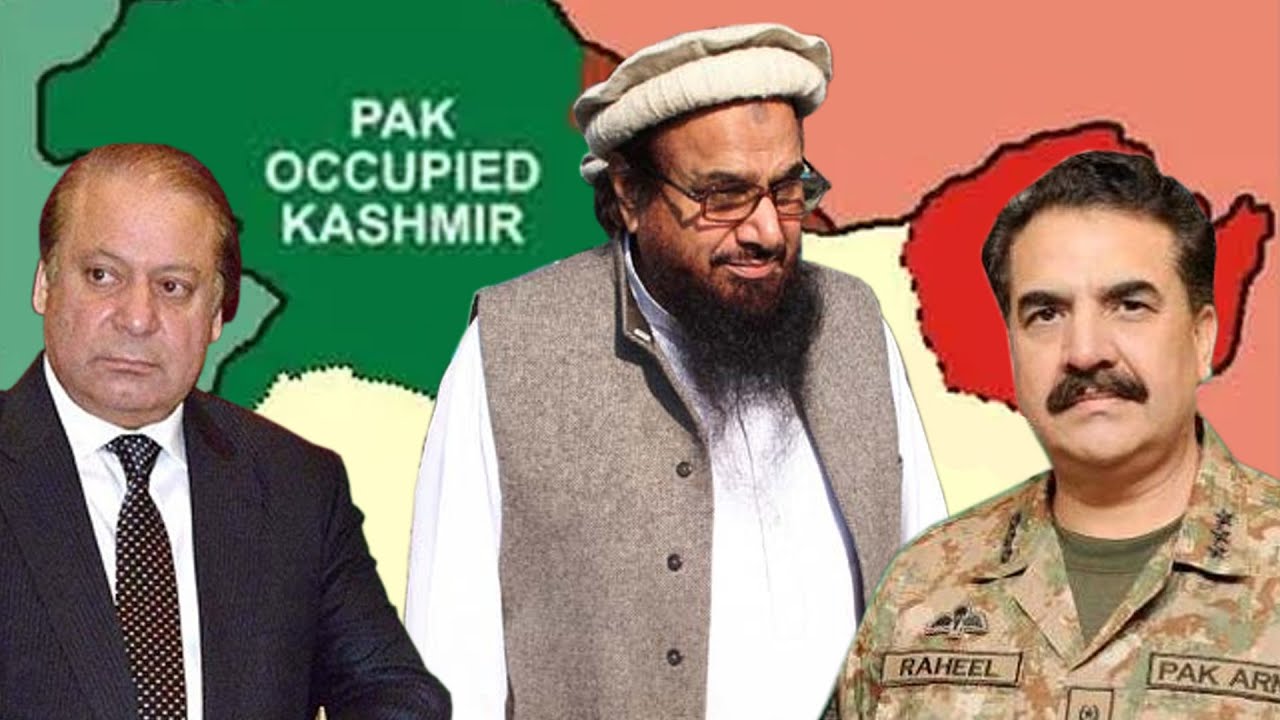Basic Information. The diverse political unit of Jammu and Kashmir which came together because of a confluence of many factors in the 19th century has propounded many myths. One such myth relates to POK, a sliver of the undivided princely state that has been controlled by Pakistan since 1947, which has often escaped popular discussion. Pakistan refers to this area as “Azad Jammu and Kashmir”, meaning independent Jammu and Kashmir. Its legislative assembly has the power to elect its PM and President. At international fora, the nomenclature of executive positions and a separate Constitution are presented as evidence by Pakistan that the region is an independent entity. However, the reality is a lot different. On top of this, the whole electoral exercise is held in a manner that perpetuates the unrealistic expectations and ideas that Pakistani society has about Jammu and Kashmir. This in turn has held all the efforts towards sub continental cooperation hostage.
Legal Status. There are contradictions between the Pakistani and POK Constitutions. For instance, Article 257 of Pakistan’s Constitution holds that the “people of Jammu and Kashmir will define their relationship with Pakistan after obtaining freedom”. On the contrary, Part 2 of Section 7 of the 1974 POK Constitution says that “no person or political party in POK shall be permitted to propagate against or take part in activities prejudicial or detrimental to the ideology of the state’s accession to Pakistan”. Under Section 5(2) (vii) of the POK legislative assembly election ordinance of 1970, “a person will be disqualified for propagating any opinion or action in any manner prejudicial to the ideology of Pakistan, the ideology of the state’s accession to Pakistan or the sovereignty and integrity of Pakistan”. Thus, without signing an affidavit of allegiance to the accession of Jammu and Kashmir to Pakistan, nobody is allowed to take part in the POK legislative assembly elections. In the past, the Amanullah Khan led Jammu and Kashmir Liberation Front and the All Parties Nationalist Alliance espousing an independent state of Jammu and Kashmir were not allowed to participate because they refused to sign the affidavit.
Within the same Constitution, the oath of office for the appointment to important posts like those of the PM, President or Speaker in POK contravenes the claim that POK is an independent country. For instance, the oath of office for the President of POK reads: “As President of Azad Jammu and Kashmir, I will be loyal to the country and the cause of accession of the state of Jammu and Kashmir to Pak.”
Legislative Dilemma. There are 45 elected seats which include 12 “refugees’ constituencies”. These 12 seats have been used as an instrument to skew the overall result of the assembly in a particular direction. They are reserved for the people who migrated from the Indian side of Jammu and Kashmir in 1947 and settled down in various parts of Pakistan. In 1947-48, approximately 80 per cent of the migrants settled down in the Punjab province of Pakistan. As compared to the hilly POK, Pakistani Punjab offered more economic opportunities for the migrants. The number of original refugees and their descendants living in different parts of Pakistan is estimated to be at least two million. Nine of these seats are located in different parts of the Punjab while the remaining constituencies are scattered in Khyber Pakhtunkhwa, Baluchistan and Sindh. Equal seats six each have been allocated for refugees coming from Kashmir province and Jammu province respectively, the two culturally, ethnically and linguistically distinct provincial units of Jammu and Kashmir. However, on the ground, it results in absurdity in terms of representation.
The data of the 2006 assembly elections reveal that there were 5,46,031 registered voters for the six seats for Jammu whereas there were only 35,256 voters for the six seats reserved for the Kashmir province refugees. Although the number of seats is the same, the number of voters from the Kashmir province is only 06 per cent of the total migrant vote bank. Even within the six seats for the Jammu province, the strength of the constituencies is uneven: LA5 and LA6 in Rawalpindi had 5,000 and 1, 50,000 voters respectively. Holding elections for these refugee constituencies has little practical representational and legislative relevance as the descendants of the 1947 migrants are socially and economically well integrated in Pak, particularly Punjab.
Data of the 2006 assembly elections reveal that there were 5,46,031 registered voters for the six seats for Jammu whereas there were only 35,256 voters for the six seats reserved for the Kashmir province refugees. Although the number of seats is the same, the number of voters from the Kashmir province is only 06 per cent of the total migrant vote bank. Even within the six seats for the Jammu province, the strength of the constituencies is uneven: LA5 and LA6 in Rawalpindi had 5,000 and 1, 50,000 voters respectively. Holding elections for these refugee constituencies has little practical representational and legislative relevance as the descendants of the 1947 migrants are socially and economically well integrated in Pak, particularly Punjab.
Conclusion. The broader constitutional and procedural contours within which elections to the POK Assembly had been previously held, demolish the myth that the region is an independent entity. The holding of elections for J&K migrants in different parts of Pak merely serves as an instrument to benefit the ruling party in Islamabad. More important, it perpetuates a selective pan-Pakistan societal narrative on Jammu and Kashmir that consequently limits the scope and ability of the Pakistani State to approach the Kashmir issue and the broader Indo-Pak peace process with realism.
Courtesy : Mir Mohsin

